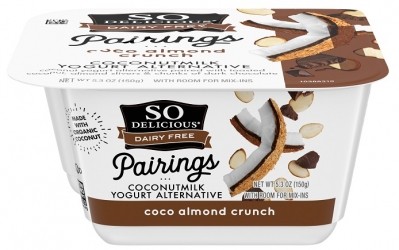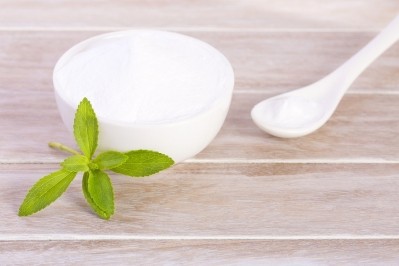Innova Market Insights: Consumers more interested in reducing sugar than replacing it, yet use of sweeteners surges
Strategies for reducing sugar intake feature a combination of sugar reduction, sugar substitution and moving beyond sweetness to alternative tastes, according to Innova.
“Sugar reduction can be achieved in a number of ways, including removing or reducing the amount of added sugar, replacing part of the sugar formulation with non-nutritive sweeteners and/or using innovative processing technologies, such as ‘aeration’ to increase perceived sweetness, slow straining milk to remove sugar prior to yogurt making, or using enzymes to convert simple sugars to fibers in juices,” Innova stated.
Another approach to sugar reduction is to use alternative flavor notes, such as bitter, sour or spicy, noted Innova, which has sparked an interest in novel and unconventional flavors to reduce the demand for sweetness overall.
For instance, interest in botanicals and their health benefits is on the rise in product development as consumers move away from more sugar-laden foods.
“Companies are also looking at alternative ingredients such as coffee cherries as a potential stealth reducer of sugar in foods containing chocolate. Upcycled coffee cherries can be used to reduce the amount of sugar in finished products by emulating flavor in highlighting the cocoa notes, so that less cocoa powder is needed,” Innova added.
Sugar-related claims
According to new food and beverage product launches tracked by Innova Market Insights, 8% of new products in 2018 featured a sugar reduction claim with claims ‘no added sugar’ being the most prominent accounting for 42% of all sugar-related claims, ahead of sugar-free (36%) and low sugar (27%).
While the ‘low sugar’ claim is smallest in terms of its share of launches, it is also the fastest growing with an NPD CAGR of 17% over the 2014 to 2018 period, albeit from a low base.
When it comes to the use of artificial sweeteners, three in five US consumers would rather cut back on conventional sugar than consume artificial sweeteners.
Similarly, HealthFocus International’s 2019 USA Trend Study: Shoppers’ Journey Towards Living & Eating Healthier (conducted in November-December 2018 with 2,000+ respondents) revealed that 45% of respondents said reducing sugar and 24% noted avoiding artificial sweeteners has become more important in their diet over the last year.
Allulose, a rising star in the sweeteners?
Interest in sugar substitution has driven the rising use of sweeteners, particularly non-nutritive varieties derived from nature, such as stevia, monk fruit, and thaumatin. Newer to the market is a allulose – a bulk sweetener that behaves like sugar – which Innova foresees moving into the “mainstream” of new product development and launches.
The April 2019 FDA announcement that allulose, a bulk sweetener that functions like sugar, no longer needs to be reported as an added sugar on the Nutrition Facts panel has sparked a flurry of product innovation across categories in food and beverage, according to Innova.
Levels of patent activity indicate current interest in the use of allulose, rising 42% in 2018 over 2017, while global new product development in food and beverages featuring the ingredient had an average annual growth of 45% over the 2014 to 2018 period, although from a low base, noted Innova.

















